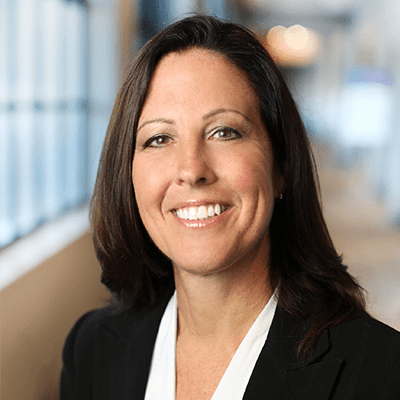- Solutions
- Solutions
- Home Health
- Hospice
- Life Plan Community
- Palliative Care
- Private Duty
- Senior Living
- Skilled Nursing
- Skilled Nursing
- Skilled Nursing Software
- Advanced Insights
- Customer relationship management
- Data and analytics
- Financial & operations management
- Marketing
- Nutrition management
- Referral management
- Regulatory compliance
- Retail management
- Resident engagement
- Revenue cycle management
- Skilled nursing interoperability
- Partners
- Blogs
- Resources
- About
- User Conference

Why patient experience matters in value-based care
Success under the value-based care model requires attention to several aspects of delivering care, including care coordination (both inside and outside your organization), integrated care and accountability for outcomes.
Another significant shift for many providers—and patients—is the need to fully involve the patient in treatment decisions. Gone are the days when providers simply gave instructions and expected patients to follow them without question. Today’s rules of participation for skilled nursing require facilities to incorporate a patient’s needs, goals and preferences as we care for them. For example, we need to gather information about their experiences, preferred activities, routine daily patterns, and meal preferences to make sure we’re properly caring for each patient as a unique person and customize their care based on their particular needs.
Studies have shown that more patient education, understanding and involvement in setting goals for their care results in higher satisfaction and improved success in outcome goal attainment. Better outcomes can include things like avoiding rehospitalization or ensuring adherence to medications or physical therapy treatments that allow them to stay at home. This heightened level of patient involvement means we have to meet them where they are and educate them about their care so we’re all on the same page.
Generational and cultural awareness
This increase in patient involvement has been a generational shift, away from a paternalistic, “doctor knows best” approach. Now, patients want to understand why they’re being prescribed a drug or a therapy, what the plan of care is, and what the expected outcomes are. And, especially in senior populations, these discussions include not only patients, but also family members or other community care team members supporting that patient’s care—for instance, a family member who may be able to help with an injection or physical therapy, or just as support for adhering to the treatment plan.
Another aspect of patient experience that is getting more attention is cultural knowledge and sensitivity. Providers need to understand a patient’s background to effectively communicate, educate and treat them. For instance, some cultures expect family members to be included in any examination or conversation about treatment. Some communities expect you to look at family members, not the patient. There could be resistance to prescription drugs from someone whose culture has traditionally focused on other types of treatment, or being culturally sensitive may be as basic as providing information about a patient’s condition that’s been translated into their native language, to enhance their understanding.
Measuring patient satisfaction
Despite the extra time and attention it takes to really focus on patient experience, it’s worth the effort. For many payors, including government programs, there are regulations requiring gathering patient satisfaction scores. These scores can be publicly reported and tied to reimbursement rates.
Although skilled nursing providers aren’t required to report patient satisfaction scores to CMS, it’s still worth conducting patient satisfaction surveys. Those results can tell you not only how happy your patients are with the care you’re delivering, but also inform your quality improvement initiatives around patient experience. Getting that information is important for following up with individual patients and for understanding what you’re doing right, where your systems are in good shape and where you may need to work to tighten things up. Excellence in patient experience will also support ongoing patient loyalty and retention. Having excellent patient satisfaction scores and being able to share that data can help inform your referral partners and deepen referral relationships, as well, since those scores demonstrate that your patients and their families are happy, and that you’re delivering high quality patient experience and can support their patient satisfaction goals.
Technology to support better patient experience
So how do you manage and measure patient experience without adding work for your staff? The more automation we can use to filter out the noise and make sure the right information is surfaced for each patient’s unique needs, the better. It’s too complicated to track everything on paper.
Look for technology tools that help you throughout the patient journey, starting with helping gather complete, accurate information at admission. Having tools that automate processes from gathering information to building plans of care and flagging triggers that require clinician action can help efficiently manage individual patient needs.
For example, if a patient has specific bathing requests, dietary or scheduling preferences, or activity involvement, that information should automatically flow from the initial assessment to the front-line healthcare team members, where it can be acted upon consistently. The great thing about these kinds of tools is that they simply work in the background so you’re not relying solely on your people to communicate key information, which can be prone to breakdowns since healthcare teams are so busy. These tools can make a major difference in the patient’s feeling that the facility healthcare teams know and understand their unique needs, are dedicated to their personalized healthcare experience expectations and goals.
More patient involvement supports better outcomes
When we involve patients more directly in their care, it helps make sure everyone is aligned and working toward the same goals. As a result, we see better adherence to care instructions, better outcomes and happier patients and families. Contact us to find out how our technology can help your organization manage and improve patient experience.
Request a demo today for a closer look at MatrixCare.
Allison Rainey
As our Head of Nursing and Clinical Informatics, Allison Rainey oversees the deployment of clinical technologies. As a Registered Nurse and License Family Practitioner, Allison drives a caregiver-first approach in our products, collaborating closely with product leaders to ensures our products and services prioritize the needs and challenges faced by healthcare providers. By aligning workflows, designs, and overall product strategy, Allison strives to offer the most user-friendly, clinically superior, and efficient suite of comprehensive solutions in the industry. Allison brings extensive post-acute care experience from her 20-year tenure at NHC, one the largest publicly traded Senior Care providers in the U.S. She is a seasoned leader in population health management strategy, clinical reporting and analytics development, and inpatient hospital care. In her most recent role as AVP of Clinical Information Technology, she oversaw the deployment and utilization of various clinical technologies, including the MatrixCare EHR, across the extensive NHC network. Allison holds a Bachelor’s and a Master’s in Nursing from the University of Tennessee.
Related Posts


See MatrixCare in action
Start by having a call with one of our experts to see our platform in action.
MatrixCare offers industry-leading software solutions. Thousands of facility-based and home-based care organizations trust us to help them improve efficiency and provide exceptional care.
© 2025 MatrixCare is a registered trademark of MatrixCare. All rights reserved.






